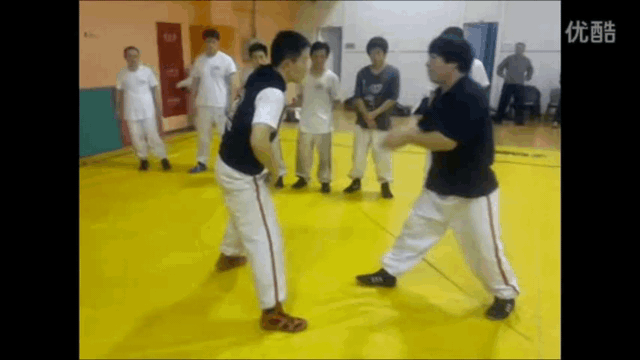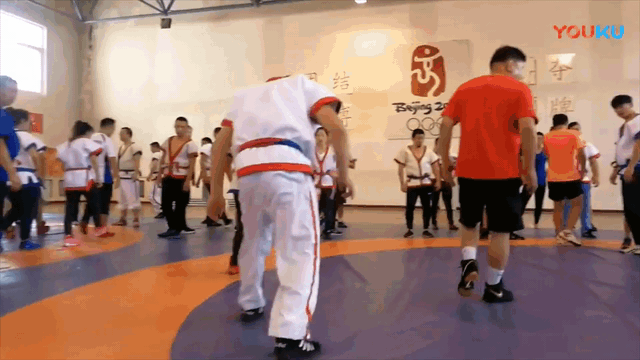For your practice, maybe that's how you see it.

In our practice, it's a sense of "emptiness."
To have a sense of guard means one has the "intent" to guard or prevent something by having the intent to do so, i.e., "guarding."
In my experience and practice, this intent is one of the things that blocks the development of the skills we practice. When I meet others outside my practice who play push hands with a "sense of guard" or similar mindset, it often doesn't work out well for them.
People watching might think, "Why doesn't the other person do this or that?" or "They’re overreacting."
In most cases, it's because they can't and are reacting to what they feel.
Taiji works on contact, depending on the nature of the contact, according to the level, "even before contact."
The practice of push hands is to develop this understanding while cultivating the skill.
Referred to as the "correct touch," with at least one person having this in training or in the group to help others. Without this, the level developed remains external, based on frame, counter techniques, and other factors.
This is why competitive push hands is not ideal as a practice, outside of the competition itself
which people practice for....
Interacting with those who do practice for competition, a good way of testing concept's in a somewhat controlled context to see if what one practices works, or needs adjustment.
As long as one keeps the purpose in mind and doesn't get caught up in the game.
For application after skill development, other skill sets need to be worked on, such as distancing, timing, and positioning.
"Start late and arrive first" means one is the point of interaction.
Change the point

"Following is leading, leading is following" a way to handle and control the interaction.



